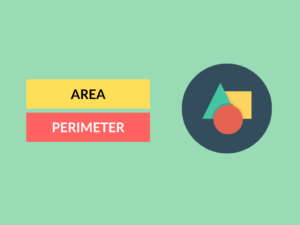Constructor vs Method: Understanding the Differences
What is a Constructor?
A constructor is a special method that is automatically called when an object is created from a class. It is used to initialize the object’s attributes or perform any setup that is required before the object is ready to be used. Unlike other methods, constructors have the same name as the class and do not have a return type.
Examples of Constructors
Let’s take a look at a couple of examples to understand constructors better:
class Person {
constructor(name, age) {
this.name = name;
this.age = age;
}
}
const john = new Person("John Doe", 25);
console.log(john.name); // Output: John Doe
console.log(john.age); // Output: 25
In this example, the Person class has a constructor that takes in the name and age of a person as parameters. The constructor initializes the name and age attributes of the object. We create a new object john using the new keyword and pass the required arguments.
Uses of Constructors
Constructors have several use cases, including:
- Initializing object attributes
- Assigning default values to object properties
- Performing any necessary setup or validation
What is a Method?
A method, on the other hand, is a function that belongs to an object or a class. It defines behaviors or actions that the object can perform. Methods are used to manipulate data, access and modify object attributes, or perform any specific tasks associated with the object. Unlike constructors, methods have a return type.
Examples of Methods
Here are a couple of examples of methods:
class Rectangle {
constructor(length, width) {
this.length = length;
this.width = width;
}
calculateArea() {
return this.length * this.width;
}
}
const rect = new Rectangle(5, 7);
console.log(rect.calculateArea()); // Output: 35
In this example, the Rectangle class has a constructor that sets the length and width of the rectangle. It also has a method called calculateArea() that calculates the area of the rectangle. We create a new object rect using the constructor and then call the calculateArea() method on it.
Uses of Methods
Methods are widely used to:
- Perform specific tasks or actions
- Manipulate data or object attributes
- Access or modify the internal state of an object
Differences between Constructor and Method
Let’s compare constructors and methods based on various aspects to understand their differences better:
| Difference Area | Constructor | Method |
|---|---|---|
| Definition | A special method used to initialize objects | A function used to define behaviors or actions of objects |
| Name | Same as the class name | Can have any name |
| Return Type | N/A (No return type) | Can have a return type |
| Execution | Automatically executed when an object is created | Explicitly called to perform certain actions |
| Initialization | Used to initialize object attributes | Used to manipulate object attributes or perform specific tasks |
| Default Existence | Only exists if explicitly defined | May or may not exist in a class |
| Number of Instances | Called only once per object creation | Can be called multiple times on the same or different objects |
| Role | Primarily used for object initialization | Primarily used for object behaviors/actions |
| Arguments | Potentially receives arguments for object initialization | May or may not receive arguments based on requirements |
| Accessibility | Publicly accessible | Can be public or private based on visibility modifiers |
Conclusion
In summary, constructors and methods have distinct purposes in object-oriented programming. Constructors are used to initialize object attributes and perform setup operations, while methods define behaviors and actions associated with the objects. Constructors are automatically executed when objects are created, whereas methods need to be explicitly called. Understanding the differences between constructors and methods is crucial in writing clean and well-structured code.
People Also Ask
1. Can a class have multiple constructors?
Yes, a class can have multiple constructors with different parameter lists. This is called constructor overloading.
2. Are constructors inherited?
Constructors are not inherited, but if a subclass does not define a constructor, the default constructor from the superclass is automatically called.
3. Can a method have the same name as a constructor?
Yes, a method can have the same name as a constructor. This is known as a method overload, where the method and constructor have the same name but different parameter lists.
4. Can constructors be static?
No, constructors cannot be static because they are tied to object creation.
5. Can a method have a different return type than the constructor?
Yes, a method can have a different return type than the constructor. Constructors do not have a return type, while methods can return values based on their defined return types.




